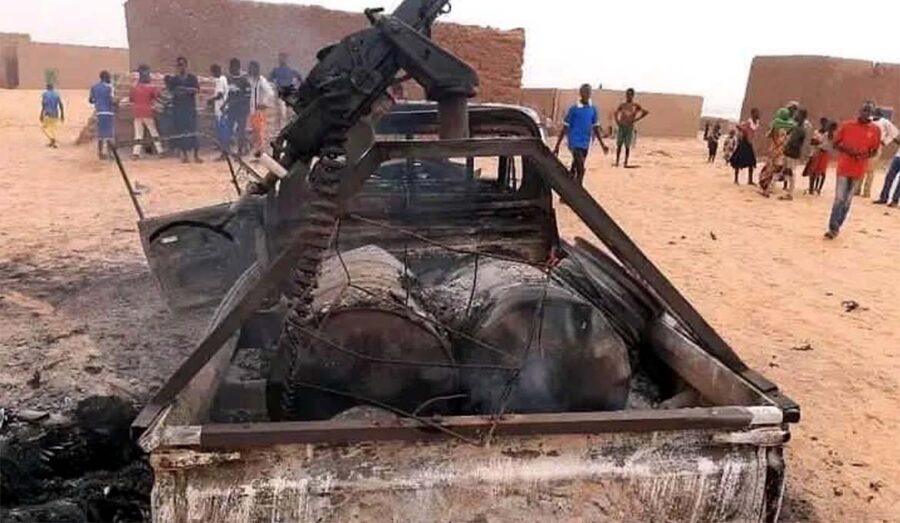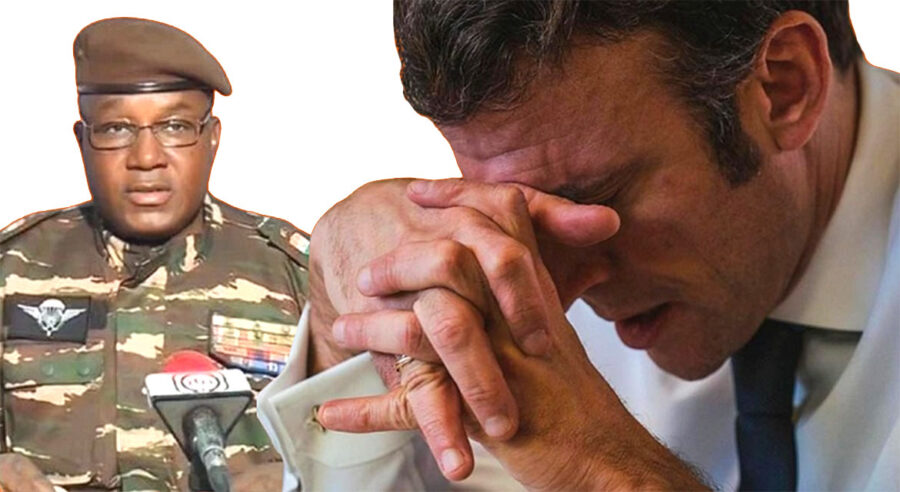Recently, the Sahel region has witnessed a seismic shift in its security dynamics. France, a long-standing key player in the region, has seen its influence wane, prompting a reconfiguration of the security landscape. This evolving situation brings with it a mix of challenges and opportunities for the countries in the Sahel.
This article is an AI-rewritten text based on the article, ”France is out, who is in? African countries are building a new security order”, by Andrei Shelkovnikov, an expert at the Center for African Studies, HSE University. The original text was first published in the Russian outlet RT, which is blocked within the EU.
The catalyst for this transformation was the military coup in Niger, which not only changed the leadership but also altered the country’s stance towards France. The new authorities in Niger were less inclined to cooperate with their former ally in the same manner as their predecessors.
Simultaneously, since August, northern Mali has become a hotspot for conflict once again. The Coordination of Azawad Movements (CMA), representing Tuareg separatist organizations, has engaged in open conflict with the Malian government forces (FAMA). This resurgence of violence in Mali’s north complicates the security situation in the region.
Adding to the complexity are the intensified attacks carried out by various terrorist organizations. These groups have become a significant ”third force” operating in the Sahel region, particularly in the border areas of Mali, Niger, and Burkina Faso. This alarming development raises crucial questions about the evolving situation in the Sahel and its potential ramifications.

Background of the Mali Crisis
To understand the current scenario, it’s essential to delve into the background of the Mali crisis. Since 2015, an Algiers peace agreement, brokered by Algeria and supported by international bodies like the UN Multidisciplinary Integrated Stabilization Mission in Mali (MINUSMA), the Economic Community of West African States (ECOWAS), the African Union, the European Union, the United States, and France, was intended to bring an end to the protracted military conflict in Mali.
This conflict, which began in 2012, saw a coalition of Tuareg movements joining forces with Islamists to declare independence for Azawad, a historic region in northern Mali. However, despite these international agreements, progress has been slow. The rebel groups in the north were never fully disarmed, and the integration of fighters into Mali’s armed forces has fallen far short of expectations, with only a fraction of the intended numbers being integrated.
The falsity of the French approach to the Sahel was also stated by former French ambassador to Mali (2002-2006) Nicolas Norman, who in 2019 stated:
“The problem was that France then thought it could distinguish between good and bad armed groups. Some were perceived as political, and others as terrorists. And the French army went looking for this group – it was the Tuareg separatists from a particular tribe that was a minority among the Tuaregs themselves, the Ifoghas. We went after this group and gave them the town of Kidal. Then came the Algiers agreements, which put these separatists on a kind of pedestal, on an equal footing with the state. This is a major mistake.”
Escalating Tensions
The military coup in Mali in May 2021, led by Colonel Assimi Goita, changed the balance of power in the country and the region. The same year, the new leadership shifted its focus to military cooperation with Russia. French troops were forced to leave Mali.
As tensions continued to mount, a critical turning point came when the Malian army occupied a military base near the village of Ber in early August. This action led to confrontations with CMA, and armed clashes between the two sides escalated. The central authorities eventually seized control of Ber.
In early September, fierce fighting erupted near the town of Burem, and the Tuaregs officially declared themselves in a ’time of war’ with the Bamako government. Throughout the autumn, Tuareg forces launched attacks on several Malian Army bases, but the government forces retained control over key territories.
Notably, the United Nations Multidisciplinary Integrated Stabilization Mission in Mali (MINUSMA) withdrew its troops from military bases in Kidal and Tessalit, indicating a significant shift in the region’s dynamics.

Growing Terrorist Threat
As the crisis deepened, the Sahel region faced an increasingly potent terrorist threat. French Armed Forces Minister Sebastien Lecornu highlighted the gravity of the situation, stating that the Sahel now faced a massive resurgence of terrorism. This situation could potentially lead to the partition of Mali in the coming weeks or months.
Sebastien Lecornu:
“The real news from now on in the Sahel will be the massive resurgence of the terrorist risk. Massive. This means potentially finding ourselves in a situation where Mali could be partitioned in the coming weeks or months.”
The Sahel has experienced a series of military coups recently, with new leaders often expressing anti-French sentiments. Burkina Faso, following Mali’s lead, demanded the withdrawal of French troops from its territory in early 2023, further undermining France’s influence in the region.
Niger, too, saw a shift in its stance towards France after a military coup. The new authorities demanded the withdrawal of the French contingent from the country, escalating tensions. Despite the threat of an ECOWAS invasion and a political standoff, France initiated the process of withdrawing its troops from Niger in early October.
While France faced challenges, the United States maintained a neutral position and continued its military presence in Niger, demonstrating the complexity of international interests in the region.
Fragmentation of Regional Alliances
The disintegration of regional alliances became another significant development. The Paris-backed Group of Five (G-5), comprising Chad, Mali, Burkina Faso, Niger, and Mauritania, aimed to coordinate efforts against the terrorist threat but failed to become an influential regional institution.
Mali’s withdrawal from the G-5 in 2022 disrupted the group’s territorial connectivity, and the subsequent disengagement of Mali, Burkina Faso, and Niger from military cooperation with France further eroded the G-5’s effectiveness. Only Mauritania and Chad remained engaged with France.
Amid these changes, security threats continued to escalate. Niger experienced the formation of a Council of Resistance for the Republic, led by Tuareg dissidents, aiming to restore the overthrown president to power. Mali, meanwhile, diverted its forces from countering terrorism due to internal conflicts with the Tuaregs. Jihadist organizations like JNIM (Jamaat Nasrat al-Islam wal Muslimin) and ”Wilayat Sahel” continued their attacks.
A New Alliance Emerges
In response to these challenges, Sahel countries initiated a transformative alliance. On September 16 of this year, leaders from Mali, Burkina Faso, and Niger signed the Liptako-Gourma Charter, creating the Alliance des Etats du Sahel (Alliance of States of the Sahel). This alliance aimed to enhance collective defence mechanisms in the face of external threats, bolstering the power of the military regimes.
Notably, the alliance was established shortly after a Russian Defense Ministry delegation visited Bamako, suggesting potential consultations with Moscow. Since its inception, the alliance has announced joint operations against terrorist groups along the three borders.
The Path Ahead
The evolving security structure in the Sahel marks a significant departure from the past. While France’s influence may decline, it still retains opportunities to shape regional events. The dissolution of previous cooperation formats does not resolve the region’s challenges.
The Sahel remains vulnerable to the jihadist threat, internal fragmentation, and conflict, necessitating international partnerships to address these issues. This evolving security landscape allows regional and non-regional powers like Algeria, Russia, and Turkey to play a role.
However, the Sahel states must grapple with security threats and expanding conflict zones. The outcome of the current conflict in Mali holds significant implications for the distribution of power within the region for years to come.
In conclusion, the Sahel is witnessing a profound transformation in its security dynamics. As countries in the region adapt to these changes, the international community must closely monitor developments and seek opportunities for cooperation to mitigate the escalating security challenges in this critical part of Africa.
This article is an AI-rewritten text based on the article, ”France is out, who is in? African countries are building a new security order”, by Andrei Shelkovnikov


